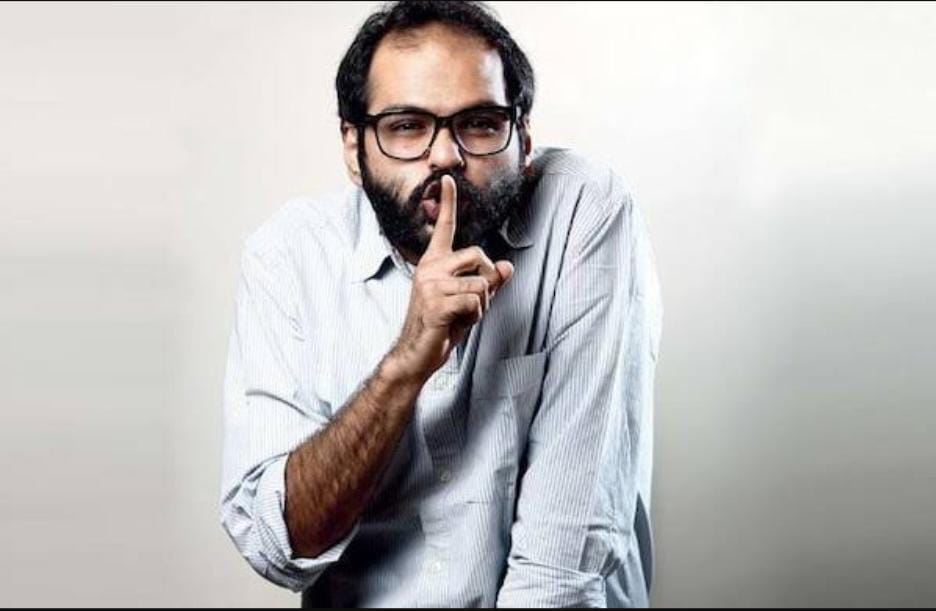
Raqif Makhdoomi
On the Lex Fridman podcast, Prime Minister Narendra Modi said, “Criticism is the soul of democracy.” But increasingly in India, the moment someone actually criticizes power—or even cracks a harmless joke—they’re met not with debate, but with threats, FIRs, or worse.
Take comedian Kunal Kamra. A two-minute video of his stand-up routine—containing light satire aimed at Maharashtra’s Deputy Chief Minister—triggered an outsized response. Workers from the Shinde faction of Shiv Sena vandalized the venue where the show had been recorded months earlier. This reaction wasn’t just disproportionate—it revealed how a section of political supporters has become unable to distinguish between satire and sedition.
The irony is hard to miss: the government talks of democratic values on global podcasts, but back home, comedians are chased for jokes. Kamra is now facing an FIR under the new Bharatiya Nyaya Sanhita for public mischief and defamation. Meanwhile, Shiv Sena MP Naresh Mhaske warned that Kamra would be hunted across the country and forced to flee. What crime did Kamra commit? He dared to joke about powerful people.
Unfortunately, Kamra’s case is not an outlier.
In 2021, Munawar Faruqui was jailed for more than a month—without trial—after a mob interrupted his performance, claiming he was going to insult Hindu deities. No evidence was presented. His shows were cancelled across the country.
Vir Das’s 2021 monologue “Two Indias” at the Kennedy Center highlighted contradictions in Indian society. For that, he was labeled a terrorist and faced multiple FIRs. Agrima Joshua received rape threats for a joke about a statue. Varun Grover was targeted for writing a protest poem. Tanmay Bhat faced criminal complaints for a parody using Snapchat filters.
These incidents reveal a deeper crisis: In today’s India, satire has become a political battlefield.
And let’s be honest—the vast majority of these comedians are Hindus. The threats they face often come from fellow Hindus who claim to speak in the name of religion or nationalism. So when someone says “Hindu khatre mein hai” (Hindus are in danger), we must ask—from whom? Often, the danger is within—ideological rigidity turning against anyone who thinks differently.
It’s not the jokes that are the problem—it’s the insecurity of those in power.
Most of these comedians comment on policy failures, public discourse, or popular myths. They’re not inciting violence or spreading hate. They’re asking questions, telling truths, and—at worst—making people uncomfortable. That’s their job. The real threat isn’t a comedian on stage—it’s a system that punishes humor more than hate.
Chief Minister Fadnavis recently said, “There is freedom of stand-up comedy, but comedians cannot say whatever they want.” But that’s exactly what freedom means: the ability to express uncomfortable truths without fear of retribution.
Kamra is a comedian, not a journalist—yet today, comedians are held to harsher standards than many anchors on primetime TV.
The irony is sharp: comedians who write their own material face arrest, while news anchors reading government-fed scripts are protected and praised. Perhaps Kamra should have become a journalist—no one touches them, as long as they toe the official line.
And just when we thought it couldn’t get more absurd, the BMC carried out a “demolition” at the venue where Kamra’s show was filmed. Political overreach dressed as governance.
Meanwhile, Kamra, speaking from Tamil Nadu, told a top Mumbai cop that he doesn’t regret his words. The courage we hope to see in institutions is today being shown by a lone comedian.
This isn’t just about comedy. It’s about the shrinking space for dissent. Mumbai Police have started recording statements from audience members who attended comedian Kunal Kamra’s stand-up show Naya Bharat, held on February 2, 2025, at Habitat Studio.
The investigation stems from alleged controversial comments Kamra made during the performance about Maharashtra Deputy Chief Minister Eknath Shinde.
As part of the inquiry, police have also issued notices to some attendees under Section 179 of the Criminal Procedure Code (CrPC), which empowers authorities to summon individuals as witnesses during an investigation.
Criticism is not anti-national. Dissent is not sedition. And a joke is not a crime. India has always thrived on debate, humor, and critical thinking. That spirit must be protected—not bulldozed.
(Raqif Makhdoomi is a human rights activist and a law student)




